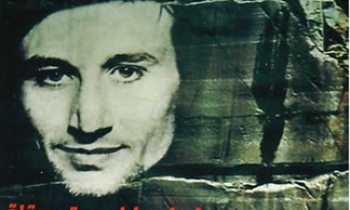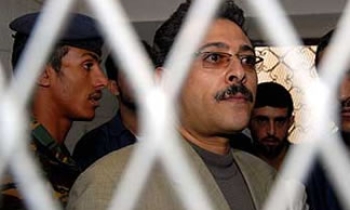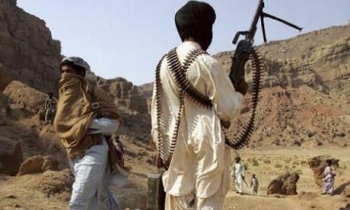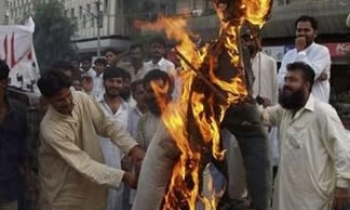AMMAN, Jordan, 29 June 2007 – Mohammad’s TV show, ‘Sabah El Kheir Mosul’ (Good Morning Mosul), is different than most Iraqi news programmes. To balance the grim daily reports of bombings and violence, Mohammad, 28, is trying a new focus – the lives of children.
“I used to dream of being a children’s cartoonist,” said Mohammad. “But the war has made this job very hard. So for now I am satisfied just giving space to children on my show, because children need all our help.”
Mohammad’s work is devoted to issues that touch children deeply, such as their experiences at school, their treatment at home and the changes that conflict has brought to their lives. He also hosts a radio programme giving young artists, writers and others the chance to share their skills and hopes – despite Iraq’s embattled environment.
“Our programme deals with things that may be difficult for families to face – issues such as smoking, drug addiction and the pressure to quit school for work,” said Mohammad. “These subjects are best handled by young people themselves…. Teenagers will not listen unless they hear information presented by other teenagers, straightforwardly and candidly.”
Safely covering children’s issues
Encouraging this kind of child-friendly journalism is a badly needed initiative in Iraq. But Mohammad and his colleagues face many risks. After suffering years of authoritarian censorship, Iraq’s media outlets are now being shredded by violence. Hundreds of Iraqi journalists have been killed, kidnapped or detained since 2003.
“I don’t know which direction danger will come from,” said Mohammad. “My programme guests are also afraid to be targeted. If a child appears on a certain channel, it is seen as the whole family’s approval of that channel’s ideology.”
Finding ways to cover children’s issues safely despite the immense difficulties and risks was the focus of a recent meeting organized by UNICEF with over 30 Iraqi journalists. The participants – from major TV networks, radio stations, newspapers and Iraq’s burgeoning blog culture – discussed why coverage of children’s issues has taken a back seat to the country’s political and sectarian crisis.
Resolution for child rights
According to Mohammad, the meeting was a rare chance for Iraqi journalists to meet without fear and discuss issues affecting their own families and children.
“In Iraq, we struggle to ensure fair reporting on humanitarian issues. With so many problems it is too easy to forget about children or misrepresent them,” he said. “Children participating in the media can build their own self-esteem and help to educate and enlighten their peers. It is our responsibility as journalists to assist them, and our duty as community members.”
As a result of the meeting, Iraqi journalists developed and signed a resolution committing themselves to take concrete steps to protect children’s interests and expose those who abuse their basic human rights.
It is the first time since 2003 that members of Iraq’s divided press have agreed on any major issue – evidence, according to Mohammad, that children have the power to unite. “Focusing on the welfare of children,” he said, “is the best thing Iraqi journalists can do to make Iraq’s reconciliation and recovery a reality.”









